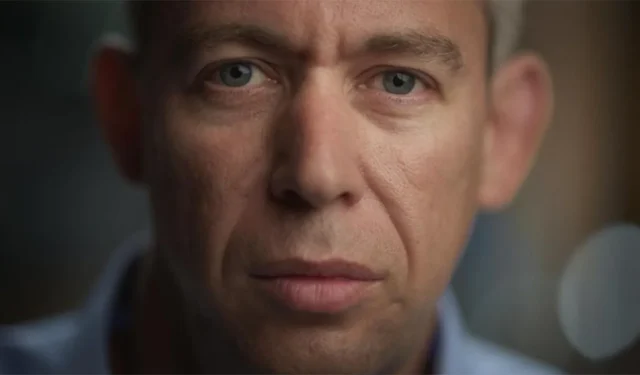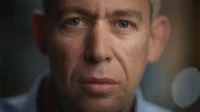Exploring the Haunting Journey of Martin Pistorius in ‘Ghost Boy’
Directed by Rodney Ascher, the film Ghost Boy delves into the chilling real-life story of Martin Pistorius, a South African author and miraculous survivor of locked-in syndrome. Based on Pistorius’ autobiography, this film intertwines elements of horror and mystery that resonate deeply with audiences.
While many may recognize Pistorius from his emotionally charged TEDx Talk or the influential NPR Invisibilia episode from 2015, Ghost Boy offers a profound and unsettling experience for those unfamiliar with his story. This adaptation brings new layers to his tragic yet inspiring narrative, transforming a personal ordeal into a universal tale of resilience.
A Suburban Childhood Cut Short
The film begins with a glimpse into Pistorius’ seemingly ordinary life in Johannesburg as a twelve-year-old boy with a passion for electronics. That normalcy is abruptly shattered when a simple sore throat leads to an unimaginable downward spiral, rendering him both paralyzed and isolated. He articulates this experience by likening it to a ghost awakening without knowledge of their demise—an insight that Ascher underscores with a poignant clip from the film Ghost.
Artistic Storytelling Techniques
Ascher employs a compelling blend of archival footage, film clips, and dramatic reenactments, effectively mirroring the protagonist’s descent into a prolonged abyss. The artistic direction draws comparisons to Lars Von Trier’s Dogville, utilizing a stark soundstage to amplify the haunting nature of Pistorius’ story. Through innovative interviewing techniques reminiscent of Errol Morris’ Interrotron system, Pistorius, unable to speak due to his condition, communicates through a vocal synthesizer, lending an authentic voice to his narrative.
The Nightmare of Isolation
At the heart of Ghost Boy lies the harrowing depiction of Pistorius’ teenage years spent in a care facility, where he faced victimization and neglect. Despite his father’s unwavering support, the emotional toll on his mother led to a state of depression that further compounded his suffering. The juxtaposition of love and abandonment in his life forms a poignant backdrop against which his story unfolds.
Power of Resilience and Language
What truly empowers the narrative is Pistorius’ articulate description of anguishing experiences, allowing audiences a glimpse into a world most will never know. His ability to convey complex emotions and thoughts through cultural references adds depth to his ordeal. For instance, he recounts the persistent play of Barney & Friends as “monstrous torture” and reflects on the lyrics of Whitney Houston’s “Greatest Love of All” as a source of specific resonance during his tribulations.
Transforming Darkness into Light
As the dark narrative progresses, rays of hope start to emerge, particularly when a caring nurse recognizes Pistorius’ sentience. The film gradually shifts towards a tale of survival and recovery, detailing how communication methods evolved—from simple pictorial cards to sophisticated computer systems. As he matures, Pistorius learns to express himself more profoundly, ultimately leading to the striking insights reflected in his writing.
A Haunting Reality and Remarkable Resilience
What distinguishes Ghost Boy from Ascher’s previous works is the unfaltering reality that underpins it. The events portrayed may seem surreal, but they are rooted in the authentic struggles of a man who existed within what felt like an out-of-body experience. Pistorius recalls, “The one person I talked to was God,”highlighting the depths of his despair while facing dehumanization from those meant to care for him.
Conclusion: Rising from the Depths
Ultimately, the triumph of the human spirit shines through as Pistorius emerges stronger and more insightful than ever. His ability to articulate profound truths about suffering and survival leaves a lasting impression, as he concludes, “I have come from a terrible darkness,” almost with an air of triumph. Ghost Boy is not just a documentary; it is a testament to resilience, shedding light on the darkness with clarity and purpose.


